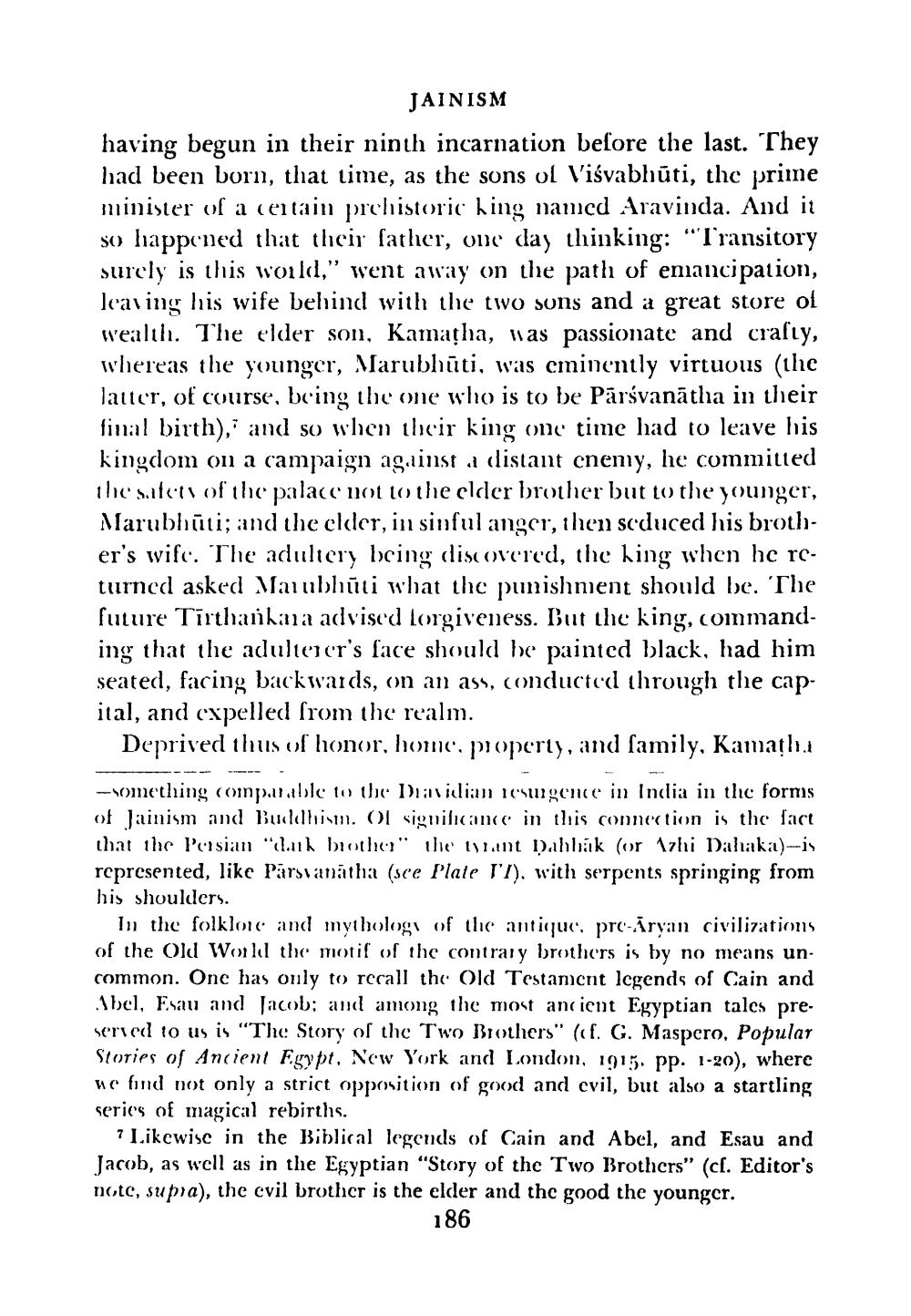________________
JAINISM
having begun in their ninth incarnation before the last. They had been born, that time, as the sons of l'iśvabhūti, the prime zminister of a certain prehistoric hing named Aravinda. And it so happened that their father, one day thinking: "Transitory surely is this world," went away on the path of emancipation, leaving his wife behind with the two sons and a great store of wealth. The elder son, Kamatha, was passionate and crafly, whereas the younger, Marubhūti, was eminently virtuous (the latter, of course, being the one who is to be Pārsvanātha in their final birth), and so when their king one time had to leave his kingdom on a campaign against a distant cnemy, he committed the safety of the palace not to the elder brother but to the younger, Marubhūti; and the elder, in sinfulanger, then scduced his brother's wife. The adultery being discovered, the king when he returned asked Maiubhūti what the punishment should be. The future Tirthankara advised torgiveness. But the king, commanding that the adulterer's face should be painted black, had him seated, facing backwards, on an ass, conducted through the capital, and expelled from the realm.
Deprived thus of honor, home, property, and family, Kamatlı.
--something computable to the Dravidian resurgence in India in the forms of Jainism and Buddhism. OL significance in this connection is the fact that the Persian dark brother" the tant Dabbák (or 1zhi Dahaka)-is represented, like Pärsvanātha (sce Plate l'). with serpents springing from his shoulders.
In the folklore and mythology of the antique: pre-āryan civilizations of the Old World the motif of the contrary brothers is by no means un common. One has only to recall the Old Testament lcgends of Cain and Ubel, Esau and Jacob; and among the most ancient Egyptian tales preseried to us is "The Story of the Two Brothers" (cf. G. Maspero, Popular Stories of Ancient Egypt, New York and London, 1915. pp. 1-20), where ne fund not only a strict opposition of good and cvil, but also a startling series of magical rebirths.
? Likewise in the Biblical legends of Cain and Abel, and Esau and Jacob, as well as in the Egyptian "Story of the Two Brothers" (cf. Editor's note, supra), the cvil brother is the elder and the good the younger.
186




